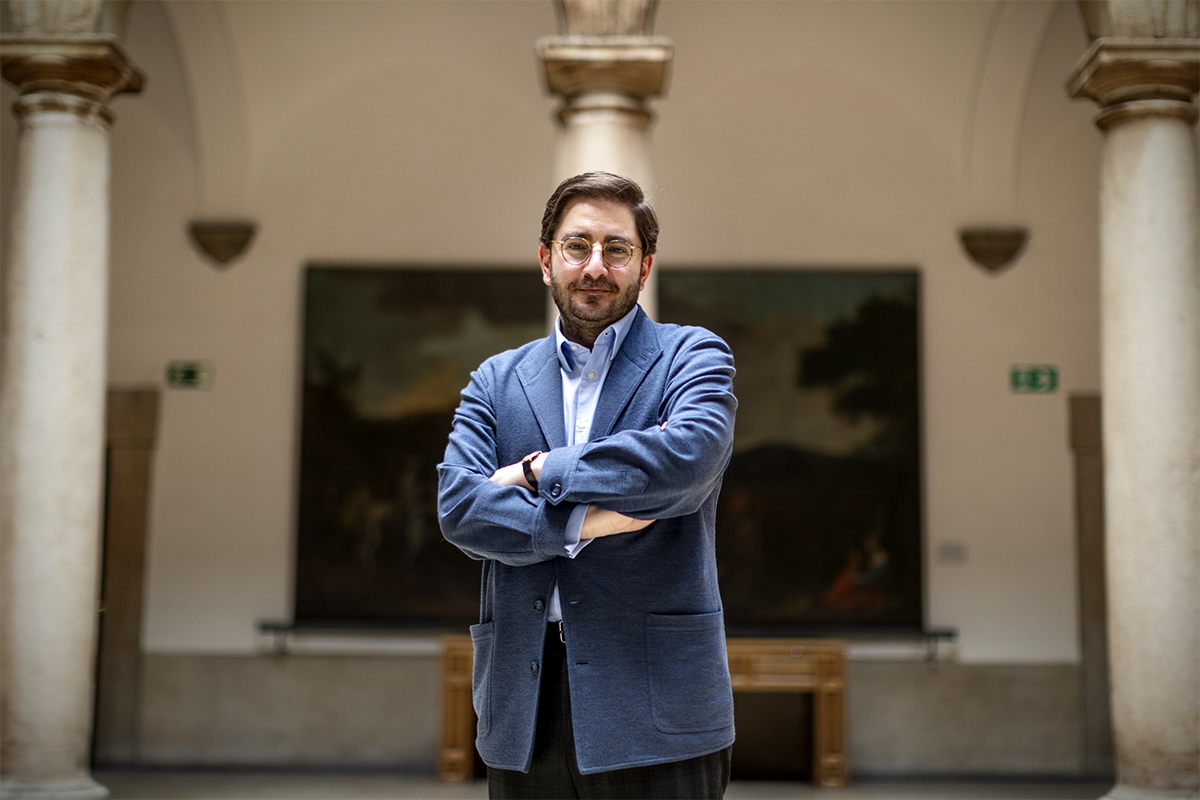- Timothy Garton Ash. "Democracies respond slower than dictatorships to the crisis but better"
- Ivan Krastev. "The Coronavirus Crisis Will Strengthen Nationalism"
- Free Journalism: The Most Effective Antibodies Against Censorship
Manuel Muñiz (1983) is a doctor from the University of Oxford and has been director of the Transatlantic Relations Program at Harvard University, as well as dean of IE. For a little over 100 days, he has been the Secretary of State of Spain for Globa l and is one of the experts on the committee created by the Government to direct the de-escalation process. He gives his first interview to a written medium since he has worked at the Palacio de Santa Cruz, the ministerial headquarters in the center of Madrid
Spain has presented a more vague de-escalation plan than countries such as France and Italy and there are autonomous communities, some governed by the PSOE, which label it 'confusing'. In the Ministry we have dedicated ourselves to studying the plans of all countries, starting by the Asians, who started the de-escalation earlier and, of course, the Europeans. They all take very similar steps. Behind the dates there are phases that we follow according to the criteria of the epidemiological experts. Any country depends on those indicators. In France [hours after the interview, the Senate rejected Macron's plan], where the most specific date has been presented, they acknowledge, like everyone else, that their calendar is subject to the evolution of the pandemic. According to a recent survey From the National Institute of Analytical Studies, 67.9% of the interviewees described the crisis management as 'disaster'. Don't you think that the government has lacked self-criticism? I think the criticism is very healthy, but it is insane if it occurs in the midst of managing a crisis of this magnitude. Later, it will undoubtedly be necessary to do it and think about how to improve the management of systemic risks, such as a pandemic or a large-scale cyber attack. Analyzing the management of the other countries, I do not share that the management in Spain has been disastrous. But there are countries in our environment that do not consider our numbers of contagion and deaths. If you ask an epidemiologist how an epidemic behaves in a certain area Geographical with respect to others it will tell you that this is one of the great mysteries. Studies of previous epidemics have not yet managed to clear up some unknowns. Why? Due to the number of factors. These can be climatological, geographic, cultural - in Spain there are more than 700,000 homes in which three generations live - of urban concentration, infrastructure, how the porosity of a country is and its tourist exposure. I don't want to say that everything has been done well but it is a crisis of great complexity, with many unknowns. I think that it is not necessary to compare with the other countries, but to see how each one manages its epidemiological curve. Spain is managing it, that yes at a very high cost. We are in the first wave, more may come, as happened with the badly called Spanish flu, and you have to prepare. In the case of the flu, the second was the hardest. Yes. So it is rash to make judgments. The time will come for self-criticism and severe criticism to respond to these crises.Economic recovery and the fight against disinformation are the keys to preventing the growth of populism
How to develop efficient economic diplomacy with closed borders and a collapsed economy? In two ways: the first with the aforementioned European dimension, which implies a vigorous reaction. The second has to do with solving the issue of mobility. We have studied cases from countries that have managed it well, their epidemiological curves have had problems with imported cases. Its borders have become hard, little porous. Korea has 14-day quarantines. This is a very important economic problem because it affects not only tourism but also company executives, seasonal workers, researchers, cargo crews or, among others, transporters ... We are working within the European framework to establish mechanisms for that mobility is not so severely restricted. Is the idea of the immunological passport being considered? The WHO has already said that it is problematic because many things about immunity are unknown, and it also generates perverse incentives if privileges are granted to those who have antibodies. Another different question is if we recognized some PCR tests in destinosterceros or other ideas. Formulas are being sought so that mobility is as flexible as possible within the Union and that border severity is at the common border, not the one that delimits the Member States.According to the criteria of The Trust Project
Know more- Spain
- Coronavirus
- Covid 19
- Pedro Sánchez
Coronavirus Salvador Illa asks to meet 27 parameters to start the de-escalation
PoliticsThe Government maintains that Cs, JxCat, Más País and Compromís join its National Reconstruction Table
PoliticsPedro Sánchez prolongs the state of alarm supported by the PP but with an increasingly hostile Congress

